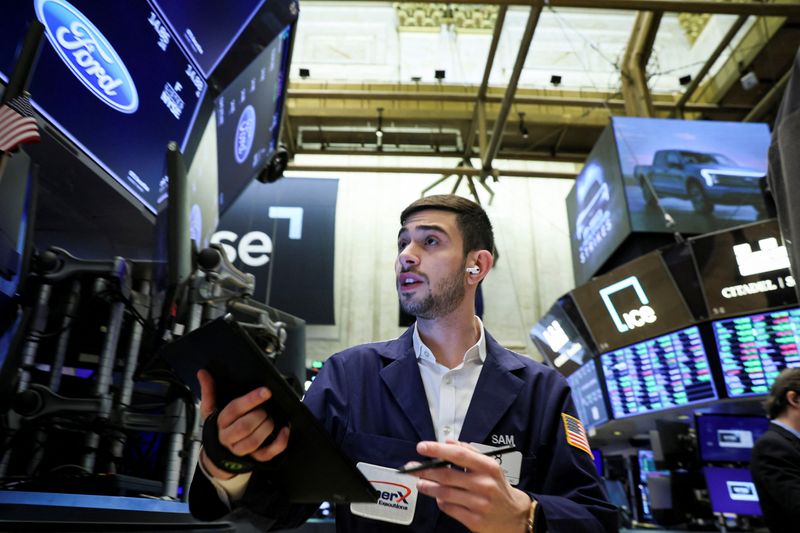 © Reuters
© Reuters
By Yasin Ebrahim
Investing.com -- The Dow fell Tuesday, but capped off another volatile month with a gain as investors weighed up the strength of the consumer at a time when the Fed is facing pressure to put the screws on inflation.
The Dow Jones Industrial Average slipped 0.7%, or 222 points, the Nasdaq fell 0.41% and the S&P 500 fell 0.63%.
Amazon.com (NASDAQ:AMZN) led consumer discretionary higher, rising more than 4% despite Jefferies trimming its price on the e-commerce giant to $3,250 from $3,700, citing concerns about an economic slowdown.
Consumer confidence in the economy, however, hasn’t deteriorated as much as expected.
The Conference Board's measure of consumer confidence fell to 106.4 in May from 108.6 in April, beating economists' forecast for a reading of 103.9.
Consumer stocks sensitive to China including Nike (NYSE:NKE) and Starbucks (NASDAQ:SBUX) were also in ascendency as Shanghai ended its two-month long Covid-19 lockdowns.
Tech, meanwhile, ended off the lows of the day amid a mixed performance from big tech following pressure from climbing Treasury yields.
Alphabet (NASDAQ:GOOGL) and Apple (NASDAQ:AAPL) were higher, while Microsoft (NASDAQ:MSFT) and Facebook (NASDAQ:FB) ended the session in the red.
Energy cut its gains after oil prices slipped on reports that some OPEC members are considering suspending Russia’s participation in the oil-production deal. This could potentially pave the way for the other OPEC members including Saudi Arabia to increase output.
The news comes as Russia’s crude output is expected to fall after the European Union agreed on a ban on Russian oil imports.
In other news, AMC Entertainment (NYSE:AMC) fell less than 1% after giving up some gains despite signs of a return to movie demand following a record-setting weekend box-office performance by “Top Gun: Maverick.”
The positive end to May for the broader market followed a wave of disappointing quarterly earnings from retailers earlier this month showing the inflation squeeze on lower-end consumers and stoking fears that the Fed's plan to slow growth could tip the economy into recession.
But some on Wall Street suggest that while economic growth will likely slow, bets on a recession will prove overblown.
"[W]e believe fears of declining economic activity this year will prove overblown unless new negative shocks materialize," Goldman Sachs said in a note earlier this week.

